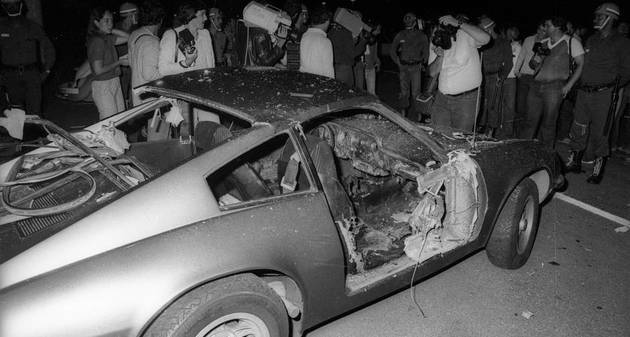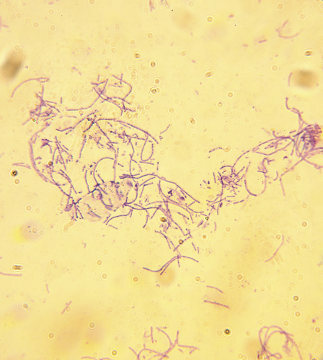João Baptista Figueiredo (1918-1999) was the last general to be president during the period of dictatorship that took place in Brazil from 1964-1985.
He ruled between March 15, 1979 and March 15, 1985 and was responsible for consolidating the opening policy of the country through the Amnesty Law and direct elections for Congress and governments of the States.
Biography
João Baptista Figueiredo was born on January 15, 1918, in Rio de Janeiro.
Son of a military man, he attended several military institutions such as the Escola Militar de Porto Alegre and remained between 1935 and 1937 at the Escola Militar de Realengo, in Rio de Janeiro.
He was the first student in the class, and because of his good performance, he received the marlin, given by Getúlio Vargas, as a tribute.
In the Army he was a cavalry instructor, attended the EsAO (School for the Improvement of Officers), was an instructor for the precursor of Aman (Military Academy of Agulhas Negras), worked in the Command and General Staff of the Army and also attended the ESG (Superior School of War).

The diplomatic activities of João Batista Figueiredo contributed to his coming to power. The first missions took place between 1955 and 1958, when he was part of the Brazilian military mission to train the Paraguayan Army.
Three years later, he served on the National Security Council and in command of the Army General Staff, between 1961 and 1964. He was also one of the members of the General Secretariat of the National Security Council of the Government of Janio Quadros (1917-1992).
In the public sphere, he supported the military movement that led to the overthrow of the president João Goulart and that started the dictatorship, which would only end in 1985.
The first governmental position exercised during the dictatorial period was the command of the SNI (National Information Service) between 1964 and 1966.
The following year, he commanded the Public Force of São Paulo and, between 1967 and 1969, the 1st Guards Cavalry Regiment, the Dragons of Independence. João Batista Figueiredo became Chief of Staff in 1969.
In the following years, he was head of the president's military cabinet. Emílio Garrastazu Médici (1905-1985) and was sworn in as chief minister of the SNI in the government of Ernesto Geisel (1907-1996). In 1977, Figueiredo rose to the rank of general.
Two years later, through an indirect election that guaranteed him 355 votes, he became President of Brazil. In order to show that the military government was coming to an end, Figueiredo enacted several laws that favored the return of civilians to power.
He married Dulce Figueiredo in 1942 and they had two children. After leaving the presidency, he abandoned politics and died on December 24, 1999.
Government
Figueiredo's government was characterized by the slow and gradual opening of policy. This meant that the entire course was controlled by the military.
Politics
Political openness was among the main commitments assumed by João Baptista Figueiredo. During his tenure, he enacted the Amnesty Law, approved in August 1979, in which the politically persecuted could return to their jobs and the exiles return to the country.
The democratization process also involved guaranteeing party plurality. Until then, Brazil was bipartisan and there were only two parties: the Arena (Aliança Renovadora Nacional) and the MDB (Brazilian Democratic Movement).
With the political opening, several parties emerged as:
- PDS (Social Democratic Party), where the former members of Arena were concentrated;
- PMDB (Party of the Brazilian Democratic Movement), made up of those who formed the MDB and led by Deputy Ulysses Guimarães;
- PP (Popular Party), founded by the deputy Tancredo Neves;
- PTB (Brazilian Labor Party), founded by Getulio Vargas;
- Left oriented PDT (Democratic Labor Party) led by Leonel Brizola
- PT (Workers' Party), founded by former president Luiz Inácio Lula da Silva.
During the administration of João Baptista Figueiredo, the project that guaranteed direct voting for governors and mayors, deputies and senators, but not for president, was approved.
attacks

President João Baptista Figueiredo had to deal with a troubled moment, as the political opening was not well received by right-wing radical groups.
Newsstands where left-wing newspapers were sold were bombed. Letter bombs were sent in August 1980 to the Rio de Janeiro City Council and to the headquarters of the OAB (Ordem dos Advogados do Brasil). The episode killed one person and maimed another.
The following year, two soldiers took a bomb to blow up Riocentro, where an event was held to commemorate Labor Day. However, one of the bombs exploded in the parking lot, killing one of the soldiers and seriously injuring the other.
Economy
In addition to eminent issues related to domestic politics, João Figueiredo needed to manage the economic crisis from the exhausted model adopted by military governments. The oil crisis was one of the main obstacles.
In order to escape external dependence on oil, the government created the program Proalcohol. This consisted of looking for alternatives to renewable fuels. Thus, Brazil became the only country to have cars powered by alcohol.
Likewise, the construction of nuclear power plants in Angra dos Reis/RJ continued. However, the works were progressively abandoned due to lack of resources.
He established the BNDES (National Bank for Economic and Social Development) as a bank that would give credit to Brazilian companies and finance public works.
In any case, it was not able to contain the rise in prices and the rise in the cost of living that harmed the poorest population. THE inflation reached US$ 61 billion dollars in 1981 and the GDP stagnated.
end of dictatorship
With high inflation and the stoppage of production capacity, the social movements gained strength. Among the main mobilizations was the 41-day strike by metallurgists in the ABC region (the metropolitan region of São Paulo integrated by the municipalities of Santo André, São Bernardo and São Caetano).
The movement's leaders were arrested, among them the union leader Luiz Inácio Lula da Silva. Also in 1981, the CUT (Single Workers Center) was created.
Popular participation in the elections for Congress and for the governments of the States took place in 1982 and, in 1984, the campaign "Direct now", to be chosen by the President of the Republic.
Despite the intense campaign carried out by the Brazilian population, the amendment was not approved. Therefore, Tancredo Neves came to power through indirect elections held in 1985.
For his part, General João Baptista Figueiredo refused to participate in the succession and did not hand over the sash to the vice president José Sarney (sworn in due to Tancredo Neves' illness).
Sentences
- I prefer horse smell to people smell.
- Whoever is against the opening, I arrest and break.
- Well, the people, the people who will be able to listen to me, will be perhaps the 70% of Brazilians who are supporting Tancredo. So I hope they are right, that Dr. Tancredo manages to make a good government for them. And forget me.
read more
- 1964 Military Coup
- Redemocratization of Brazil
- Greatest Dictators in History
- Condor Operation


